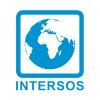Lieu
Roving in the south (Kandahar, Uruzgan and Zabul provinces) and north region (70% of time) & Kabul (30% of time)Fonctions
Gestion de projets et programmesDate de validité
05/12/2024Emergency Coordinator – DRR, WASH, Shelter, and Livelihoods – Afghanistan
INTERSOS is an independent humanitarian organization that assists the victims of natural disasters, armed conflicts and exclusion. Its activities are based on the principles of solidarity, justice, human dignity, equality of rights and opportunities, respect for diversity and coexistence, paying special attention to the most vulnerable people.
Terms of reference
Job Title: Emergency Coordinator – DRR, WASH, Shelter, and Livelihoods
Code: SR-28-9587
Duty station: Roving in the south (Kandahar, Uruzgan and Zabul provinces) and north region (70% of time) & Kabul (30% of time)
Starting date: 01/01/2025
Contract duration: 6 months (renewable) – funds depending on project approval
Reporting to: Country Director
Functional Supervisor: Head of Programme
Supervision of: Emergency Response Team
Dependents: Non-family duty station
General context of the project
Over 40 years of conflicts and political turmoil have taken a massive cumulative toll on the people of Afghanistan. A total of 18.4 million people, almost half of the total population, have been estimated by the UN to need humanitarian assistance prior to recent events. Severe droughts are recurring in Afghanistan, currently resulting in nearly 14 million people in acute food insecurity, with over 3 million children facing severe malnourishment. The recent displacement of 550,000 people is adding to an estimated 2.9 million people who remain internally displaced and in need of humanitarian assistance, while winter months are around the corner.
INTERSOS has been working in Afghanistan since 2001, with a country office in Kabul, and field bases in Kandahar and Zabul provinces. In recent years INTERSOS has been focusing its assistance based on integrated community-based approach that includes primary health care (including sexual and reproductive health care), nutrition and protection programmes serving conflict-affected populations, particularly in hard-to-reach areas, with a special focus on socially excluded individuals, including women, children and persons living with disabilities.
With its operational approach and active engagement with the communities, INTERSOS has been enjoying strong community acceptance and operational access. All INTERSOS activities continue to be implemented in Afghanistan at present time, with no operational restrictions and with full inclusion of female staff.
It is widely anticipated that Afghanistan’s humanitarian situation may deteriorate further, given that the international support to key essential and social services – food aid, health, education, and other essential services, is currently frozen. Although humanitarian aid can not replace this gap, the international assistance that prioritises urgent humanitarian needs will be essential.
At the same time, unless the operational environment with all its impediments (including in relation to banking/cash transfers and counter-terrorism measures) does not improve, the response will continue to be a challenge.
Recognising that the humanitarian situation in Afghanistan will require a more intensified international humanitarian assistance, INTERSOS remains in Afghanistan to deliver its ongoing activities, and potentially scale up its response.
General purpose of the position
The overall purpose of this position is to lead the development and implementation of INTERSOS Emergency responses, ensuring that the mission emergency response/crisis modifier plans and activities for INTERSOS Afghanistan are funded, and are successfully implemented according to the respective project budgets and time frame and the highest standards of quality and accountability.
The position ensures that all activities are aligned with the objectives of the Country Strategic Plan and donor guidelines; and that emergency response activities are synergized with the ongoing mission programming. The emergency response program will focus on DRR, WASH, Shelter, NFI and livelihood activities.
Main responsibilities and tasks
Emergency preparedness and response planning and implementation:
- Monitor the early warning information being gathered from INTERSOS (with focus on field-level data/info) as well as that of UN agencies, government and other INGOs. Share information on any alerts with the CD, Head of Program and other Programme Managers.
- Monitor potential emergency/humanitarian needs and advise the Senior Management Team on appropriate responses.
- Keep up to date with any changes in or updates to national assessment results, appeals and guidelines, and communicate these to relevant staff.
- Coordinate and lead rapid needs assessments in areas affected by shocks or where early warning information suggests a need for early action.
- Regularly update INTERSOS Afghanistan Preparedness for Effective Emergency Response/Crisis Modifier plan.
- Develop and implement capacity-strengthening plans for INTERSOS’s Emergency Response Team and partner staff
- Ensure that emergency response programs are implemented in line with National and Cluster quality standards.
- Ensure programs are designed and implemented in accordance with the Core Humanitarian Standard of Quality and Accountability (CHS).
- Promote knowledge sharing within the Country program with particular attention to humanitarian accountability issues.
- Ensure emergency projects/program staff are kept up to date on best practices in the fields of emergency preparedness and response.
- Support the resilience and durable solutions programs with training and support to the Disaster Risk Management Committees and link emergency response interventions with them wherever possible.
Financial Management:
- Manage expenditure of approved emergency budgets ensuring compliance with donor requirements and INTERSOS’s financial procedures. Keep the CD, HoP, PgM, CFC and Grants and Reporting Manager informed of any variances that may need to be communicated to donors in good time.
- In collaboration with the finance team, PgM and the HoP, develop emergency project budgets.
- Assist direct reports with financial management.
- Ensure all emergency response projects have detailed procurement plans; share and monitor progress together with the logistics & supply team timely.
Team Management:
- Manage emergency response team and ensure their ongoing career development, following INTERSOS’s internal review process (IRP) and strengthening their management capacity,
- Identify needs and opportunities for technical and capacity development within the emergency team and rollout of capacity strengthening initiatives (e.g. training, coaching)
- Identify staffing needs in line with programming and assist in the timely recruitment of staff.
- Ensure staff comply with the INTERSOS Safeguarding framework and contribute to the establishment of preventive measures to reduce the potential for abuse within INTERSOS’s programme.
Programme Design and Reporting:
- Together with the CD & HoP, build relationships with current and potential donors to support the continued growth of INTERSOS’s Emergency response funding.
- Provide brief periodic updates to the CD, HoP, and members of the Country Management Team, and to INTERSOS Head Office as relevant.
- Develop concept notes, proposals and funding applications to build INTERSOS’s emergency portfolio and to respond to crises – working with technical coordinators as appropriate.
- Provide the Grants and Reporting Manager, CD, HoP, etc. with timely responses to queries on concept notes, proposals and reports.
- Ensure monthly reports are submitted to the Grants and Reporting Manager by the deadline.
- Report any new developments, problems and challenges encountered in implementing emergency response projects in a timely manner and through appropriate channels.
Networking and Coordination:
- Ensure proper representation of INTERSOS Afghanistan program at Cluster, working groups, and other emergency preparedness and response-related meetings (in consultation with the CD, HoP and Program Managers)
- Ensure INTERSOS programs are coordinated with other actors and included in all relevant databases, 4W matrices, etc.
- Ensure good collaboration and working relationships with government and other relevant partners.
- Create appropriate links, working procedures, and information sharing with stakeholders – UN agencies, INGOs, NGOs, and government bodies regarding response plans, agreements, reports, training, etc.
- Share information on INTERSOS interventions and promote good relations and collaboration with other actors working in the area.
Monitoring, Evaluation, Accountability and Learning:
- Conduct frequent supervision and monitoring visits to program areas (per security clearance) and identify any issues needing attention related to implementation, donor compliance, and program quality standards.
- Take responsibility for the implementation of learning and recommendations from external or internal reviews/evaluations and donor feedback.
- Working with the MEAL unit, PgM, Technical coordinators, and the HoP as relevant, plan and lead on baseline/endline surveys, post-distribution monitoring etc as well as any external evaluations, ensuring timely analysis and reflection on findings to inform program adaptation and learning.
- Ensure that beneficiaries have access to feedback mechanisms and that data is monitored and responses given within appropriate time periods.
Required profile and experience
Education
- MA’s Degree in Development, International Political Economy, Humanitarian Response, or a relevant technical subject (livelihood, WASH, ES/NFI, Protection, etc) or another relevant field.
Professional Experience
- Minimum ten years of experience in humanitarian aid settings with INGOs, UN agencies, and international organizations of which at least 3 abroad, with a minimum of 2 years in a senior management role.
- Experience in designing, carrying out, analyzing, and reporting on multi-sectorial emergency assessments, in line with internal and donor requirements.
- Previous experience in Disaster RIsk Reduction (DRR), WASH and Shelter.
- Experience managing complex emergency response programs through both direct implementations, through local partner organizations, and within consortia arrangements.
- Demonstrated familiarity with grant management and compliance requirements of major institutional donors (e.g AICS, ECHO, BHA, OCHA, UNHCR, etc)
Professional Requirements
- Ability to manage a large team
- Experience in Afghanistan or any similar humanitarian context will be an asset
- Experience in mainstreaming cross-cutting issues into humanitarian programs. Protection, gender mainstreaming, conflict sensitivity, DRR, etc.
- Experience working with major grants and international donors.
- Desirable experience managing WASH, shelter, NFI, and livelihood programs
- Desirable experience managing integrated projects and Intersectorial programs (Triple NEXUS).
- Essential computer literacy (MS Office and Internet)
Languages
- Fluency in English (written and spoken)
Personal Requirements
- Good organizational and planning skills
- Leadership, team management and cooperation
- Flexibility
- Negotiation skills and decision-making skills
- Diplomatic, interpersonal, and excellent communication skills
- Ability to take initiative and work independently.
- Understanding of humanitarian operations principles, standards, and best practices
- Commitment to INTERSOS principles
- Ability to work under pressure.
HOW TO APPLY:
Interested candidates are invited to apply following the link below: https://www.intersos.org/en/field-eng/#intersosorg-vacancies/vacancy-details/67164f3771b7c703042e511e/
Please note that our application process is made of 3 quick steps: register (including your name, email, password and citizenship), sign-up and apply by attaching your CV in PDF format. Through the platform, candidates will be able to track their applications’ history with INTERSOS.
Please also mention the name, position and contact details of at least three references: two line managers and one HR referent. Family members are to be excluded.
Only short-listed candidates will be contacted for the first interview.


